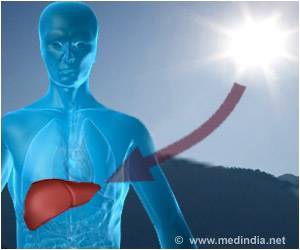Adequate Vitamin D reduces the risk of pre-eclampsia, gestational diabetes, premature delivery, and miscarriage. Moms-to-be, prioritize your Vitamin D!
- Vitamin D known as sunshine vitamin is important for bone and overall health
- Vitamin D deficiency causes hormonal imbalances that can affect fertility and pregnancy outcomes
- Consuming vitamin D with healthy fat can improve its absorption
Most vitamin D is synthesized in the skin via sunlight with a small portion from diet and supplements. Many factors influence vitamin D levels including skin pigmentation, sunscreen use, ethnicity, season and consumption of prenatal vitamins (1✔ ✔Trusted Source
Vitamin D supplementation during pregnancy: an overview
Go to source).
Vitamin D deficiency affects ovulation and implantation, making pregnancy challenging. Boost levels with sunlight and #Vitamin_D-rich_foods. #fertilityhealth #medindia’
Effect of Vitamin D on Fertility and Reproductive Health
Without adequate vitamin D levels, pregnancy becomes challenging. Vitamin D deficiency causes hormonal imbalances that can affect fertility and pregnancy outcomes.Low vitamin D levels affect ovulation (mature egg released from the ovary) and implantation (embryo attaches to the uterine lining) leading to fertility problems.
Anti-Müllerian Hormone (AMH) is a hormone produced by the ovarian follicles that directly reflects fertility level in women. AMH levels reflect a woman’s ovarian reserve or the number of eggs left. Lower AMH levels are associated with vitamin D deficiency which can affect egg quality and quantity.
Vitamin D levels influence the success rate of assisted reproductive treatments like IVF.
Importance of Vitamin D for a Healthy Pregnancy
Vitamin D becomes even more essential during pregnancy. It supports many body functions important for healthy pregnancy.Vitamin D is important for calcium absorption, which is crucial for developing bones, teeth and overall growth of the fetus. It is also important for maintaining maternal bone health.
It strengthens the maternal immune system, protecting against infection and autoimmune conditions.
Vitamin D lowers the risk of some conditions like
- Pre-eclampsia: A condition characterized by high blood pressure and protein in the urine that can be life-threatening for both baby and mother.
- Gestational diabetes: Vitamin D deficiency is associated with insulin resistance, increasing the risk of diabetes during pregnancy.
- Insufficient vitamin D can hinder fetal growth leading to premature delivery and low birth weight.
- Chronically low vitamin D levels increase the risk of miscarriage.
How to Boost Vitamin D Levels Naturally
- Incorporate vitamin D-rich food into daily meals. Vitamin D is abundant in
- Fatty fish - salmon, sardine, tuna and mackerel
- Egg yolk
- Mushrooms, nuts and seeds
- Fortified foods - dairy products like milk, yoghurt, cottage cheese
- Spend 20-30 minutes daily in sunlight preferably during early morning or late afternoon. Exposing larger skin areas such as arms, legs and face without sunscreen allows vitamin D production.
- Vitamin D is fat-soluble and should be taken with meals containing healthy fats (e.g., avocado, nuts, olive oil) to enhance absorption.
- Regular blood tests help track vitamin D levels and ensure they remain above 30 ng/mL.
- If dietary changes and sunlight exposure are insufficient, consult a doctor for supplements.
Vitamins, supplements and nutrition in pregnancy
Go to source).
Vitamin D deficiency is a significant yet often overlooked threat to women’s fertility and pregnancy outcomes. By managing vitamin D levels through a combination of dietary changes, adequate sunlight exposure and medical interventions, women can improve their chances of conception and promote healthier pregnancies.
References:
- Vitamin D supplementation during pregnancy: an overview - (https://pubmed.ncbi.nlm.nih.gov/32487800/)
- Vitamins, supplements and nutrition in pregnancy - (https://www.nhs.uk/pregnancy/keeping-well/vitamins-supplements-and-nutrition/)
Source-Medindia
















